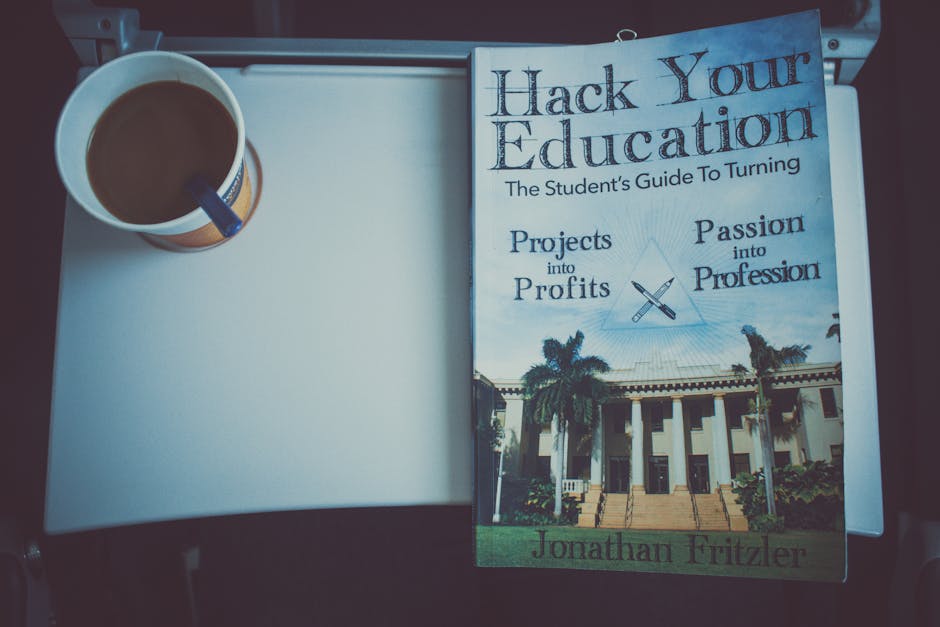The Wisdom of Play: Revolutionize Your Financial Literacy & Strategy
In a world where financial stress often reigns supreme, we find ourselves yearning for innovative ways to not just learn about our finances, but to engage with them in a way that makes sense—and dare we say, is even enjoyable? Enter the concept of play-based learning in personal finance and investment strategies. This intriguing approach invites individuals to explore the complexities of financial literacy not through intimidating textbooks or dense lectures, but through the joyful lens of play. By fostering a playful mindset, we can make sense of budgeting, investing, and wealth creation without the usual anxiety associated with money management. Let’s delve into how a playful approach can transform your financial journey.
The Playful Path to Financial Literacy
When we talk about financial literacy, it can sound somewhat dry or monotonous. However, play-based learning changes the narrative. Think about how children learn best—through games, challenges, and exciting experiences. This method of learning can equally apply to adults when tackling personal finance. A playful attitude toward learning about finances not only enhances comprehension but also retention, allowing individuals to master concepts in a more engaging way.
Research suggests that when individuals approach finance with curiosity and creativity, they tend to think outside the box. For example, gamification in financial education encourages participants to complete actions—such as budgeting or saving—by earning rewards or competing in friendly challenges. This is the premise behind many of today's financial apps that offer points for meeting savings goals or interactive budgeting tools that feel like games.
Gamify Your Savings: Injecting Fun into Financial Goals
Transforming your savings strategy into a game is easier than you think. Whether it's through apps that automate your saving goals or adding an element of competition with friends, gamifying your financial actions can make the process more enjoyable. With platforms like Qapital or Digit, you can set goals and watch your money grow as you complete challenges—like not eating out for a week or saving spare change—turning tedious chores into exciting quests.
You can check this article on gamifying your savings for more actionable ideas to start this playful approach to building wealth.
Nurturing a Wealth Mindset Through Play
Have you ever heard the expression, "Play is the highest form of research"? This holds true in finances as well. A playful mindset can help you engage more deeply with your current financial situation, empowering you to set more meaningful financial goals. By affirmatively changing your financial narrative, you can develop a wealth mindset that invites abundance rather than limiting beliefs.
If transforming your space could equally transform your mindset, then why not explore the concept of financial feng shui? Aligning your financial objectives with your physical environment can create a powerful synergy that fosters wealth. Much like how you'd declutter a space to invite new energy, examining your financial behaviors can lead to transformative insights. Check out our insights on financial feng shui for practical tips.
The Role of Mindfulness in Money Matters
Mindfulness—being present and aware of your thoughts and feelings—plays a significant role in developing a healthy relationship with money. It's important to recognize how emotions influence financial decisions. Engaging with your financial literacy through playful experiences allows for a more reflective state of mind, ensuring thoughtful money choices rather than impulsive spending.
Consider this: when you're engaged in a playful activity, such as a board game, you’re more focused and less stressed. This concentration can extend to your financial decisions when you adopt similar playful engagement with personal finance. Learn more about mindful spending habits by reading our article on mindful spending.
Transforming Financial Education: Engaging Tools and Resources

Utilizing innovative tools that focus on interactive learning can dramatically enhance financial literacy. From educational games that simulate real-world financial scenarios to interactive workshops hosted by financial experts, the options for engaging with personal finance are abundant. Platforms like Khan Academy offer courses in money management and investing, all crafted to encourage participation rather than passivity.
Another effective way to embrace play-based learning is through financial storytelling. Rather than simply absorbing numbers or jargon, consider narratives that depict real-life financial journeys. These stories can provide valuable lessons without the overwhelming feeling often associated with traditional finance learning.
For tips on transforming your money journey into engaging stories, explore our piece on financial storytelling.
The Evolution of Investment Strategies: Playing with Your Portfolio

Investing doesn’t have to feel like navigating a labyrinth of confusion. When approached with a playful mindset, it can be an exciting voyage. Just like gaming, investing requires strategy, planning, and sometimes taking risks. When you play with investment strategies and view them as part of a broader game, you may find yourself more willing to experiment and learn.
Making Sense of the Markets

Understanding market trends and evaluating investment opportunities can feel like trying to decode a complex puzzle. However, a playful approach allows you the flexibility to take trial and error as part of your learning process. Utilize investment simulation games like MarketWatch Virtual Stock Exchange, allowing you to experiment with portfolios in a risk-free environment. The lessons learned in these simulations can offer valuable insights that translate into savvy investment strategies in real life.
By treating investment as an interactive simulation, you can gain confidence and improve your ability to understand market fluctuations.
Explore articles like The Emotional Currency which examines how our mental well-being shapes investment decisions.
Micro-Investing: Small Steps, Big Gains

One of the most accessible ways to start investing is through micro-investing—small, automatic investments that accumulate over time. This concept leverages the laws of compounding without requiring enormous sums to begin. Platforms such as Acorns allow users to round up everyday purchases and invest the spare change.
This approach embraces play by making investment less intimidating while reinforcing the habit of investing regularly. The more accustomed you become to saving and investing—even in small amounts—the more you build financial literacy in the long run. Start by exploring micro-investing for more insights on fostering a habit of investment.
Diversification as a Fun Experiment

Investing doesn’t have to be a dull task; it can be viewed as an engaging experiment. Think of your investment portfolio as a science lab where you test different combinations to see what works best. Play with asset allocation—consider different sectors, investment styles (like value or growth), and geographies. The more diversified your investments are, the more opportunities you have to learn what strategies resonate with your goals and risk tolerance.
Join the conversation about optimizing your investment portfolio through informed experimentation by brushing up on articles like the investor’s symphony.
Building Community and Support Systems

Just as students learn better in collaborative environments, engaging with communities can boost your financial literacy significantly. Joining financial education groups—online or offline—allows you to share strategies, experiences, and learn from one another.
Consider the Local Finance Clubs where groups gather to discuss budgeting, investing, and saving strategies while making new friends in the process. It’s fun, engaging, and most importantly, you’ll find that learning about finance doesn’t have to be a lonely endeavor.
For tips on connecting with like-minded people interested in personal finance, check out our article on community investing.
Investing in Your Skills and Passions

Lastly, financial literacy can be substantially improved by investing in your skills and passions. Finding ways to monetarily benefit from what you love can provide insight and understanding into potential revenue streams. Whether it’s photography, baking, or crafting, embracing your hobbies can lead to both fulfillment and profitability.
Similar insights can be found in our discussion on transforming your hobbies into passive income.
Final Thoughts: Embrace the Power of Play
The age of play-based learning empowers individuals to rethink their relationship with money by making interactions with finance enjoyable and engaging. By incorporating playful elements into financial literacy and investment strategies, we can shift the paradigm from anxiety and confusion to curiosity and exploration.
So why not give it a try? Whether it’s gamifying your savings, exploring community learning, or employing mindful spending techniques, embrace a playful attitude towards finance. The journey may not be devoid of challenges, but playing can illuminate pathways to your financial mastery. By weaving learning and playful experimentation into your financial life, you’ll not only grow your knowledge but also your wealth.







